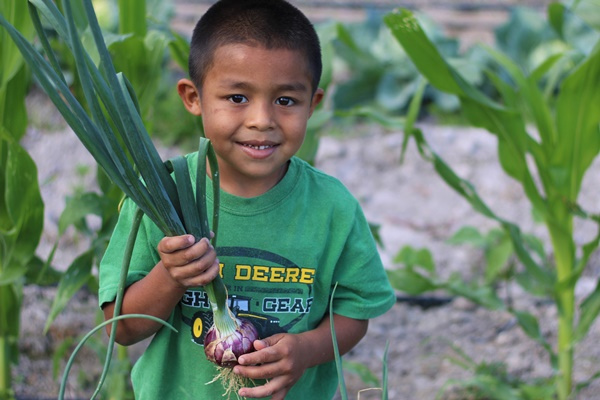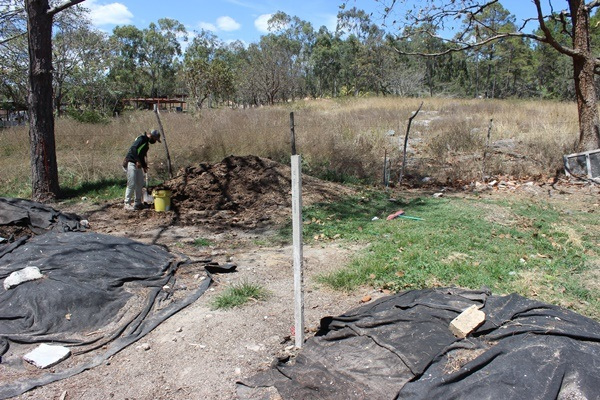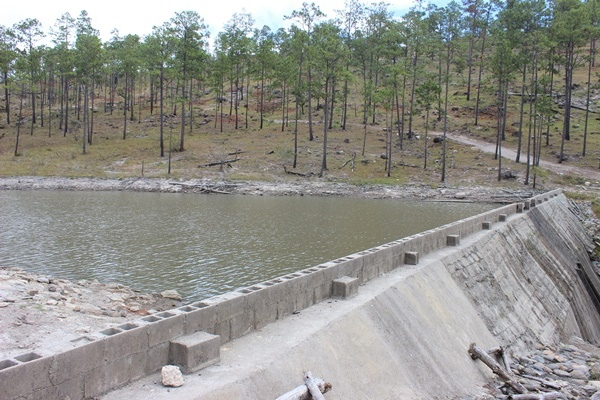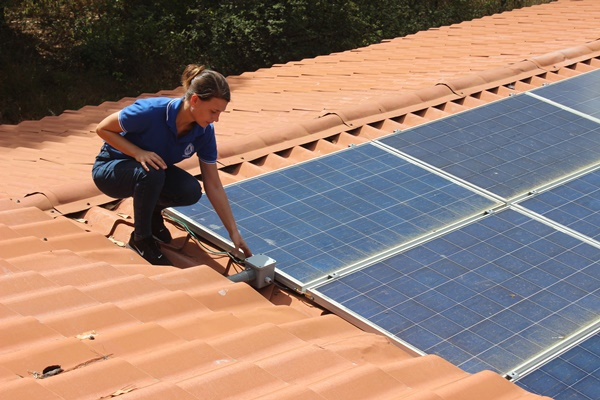NPH Honduras: Leading the Way in Sustainable Development Projects
Climate change and food shortages pose great challenges for all NPH homes. NPH Honduras is implementing sustainable projects that help feed the children and better utilize natural resources and protect the environment.
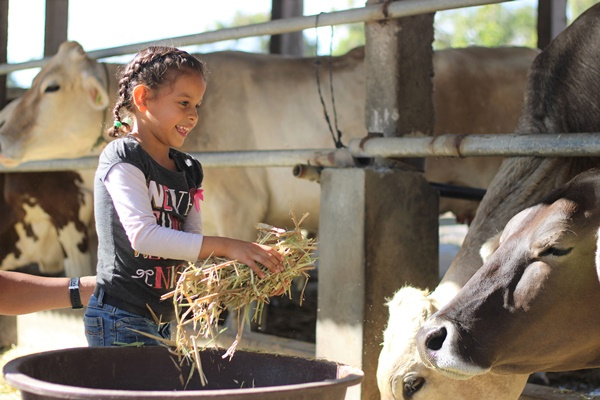 Keyla Suazo
Keyla Suazo
Communications Officer, NPH Honduras
June 14, 2021
…
Have you ever wondered how many people around the world have clean water to drink? How many children are sure that they will have something to eat tomorrow? Do you know how many people lack electricity? Providing people with greater access to clean water, food and electricity needs to be done in an environmentally sustainable manner. This is a type of efficient natural resource management, one designed to use resources productively while ensuring that these resources will still be available to cover future needs. Countries like Honduras need to consider environmental sustainability as they plan for future development.
Honduras has been facing major challenges in recent years. One critical problem in Central America is food insecurity. This results from the droughts and irregular rainfall across that have disrupted Central America’s food production, worsened by the economic crisis caused by COVID-19. According to the World Food Program (WFP), since 2018 the number of households without enough to eat has almost quadrupled in Honduras, Nicaragua, Guatemala, and El Salvador, rising to 8 million people in 2021. Of these, 1.7 million people are categorized as being at an ‘emergency’ level of food insecurity, needing urgent food assistance.
Another problem was also climate-related: Eta and Iota, the two Category-5 hurricanes that devastated Central America in 2020. According to the WFP, these hurricanes “destroyed more than 200,000 hectares of staple food and cash crops in the four countries and more than 10,000 hectares of coffee farmland in Honduras and Nicaragua”. This meant that less food and income were available regionally.
NPH Honduras has been implementing several sustainable projects to deal with the challenges caused by an extreme and unreliable climate. These include growing organic food on its farm, composting, good management of drinking water, forest protection, and the use of solar panels to produce renewable energy. All of these projects at Rancho Santa Fe have greatly reduced the negative impact of the COVID-19 health crisis and climate problems for the residents, approximately 300 children from at-risk situations, and 274 employees.
Through the sustainable projects implemented just by NPH Honduras, the NPH family is also helping to achieve several of the United Nations’ Sustainable Development Goals (SDGs). These goals include SDG2 – End hunger, achieve food security and improved nutrition and promote sustainable agriculture, SDG6 – Ensure availability and sustainable management of water and sanitation for all, SDG7 – Ensure access to affordable, reliable, sustainable and modern energy for all and SDG15 – Protect, restore and promote sustainable use of terrestrial ecosystems, sustainably manage forests, combat desertification, and halt and reverse land degradation and halt biodiversity loss, which NPH Honduras is working towards.
Furthermore, through these sustainable projects children and young people learn about the importance of taking care of natural resources and thus can develop environmentally positive habits. Let’s take a look at some projects by NPH Honduras that help to meet four of the UN’s Sustainable Development Goals
AGRICULTURE AND FARM PROJECTS – SDG2 – END HUNGER, ACHIEVE FOOD SECURITY AND IMPROVED NUTRITION AND PROMOTE SUSTAINABLE AGRICULTURE
“As we all know, this health crisis has caused an economic crisis for all, and we are not the exception. However, our practices have helped a lot to mitigate this situation. Something we always try to do is ensure all the fruit waste always goes into a special bin for compost. This material is transferred to the farm where we have a compost project, which can then be used to grow vegetables, corn, and other foods that we eat,” says Stephen O’Mahony, the National Director for NPH Honduras.
Furthermore, the farm at Rancho Santa Fe helps to feed its residents by growing 20.4 hectares of corn and almost 5 hectares of vegetables like tomatoes, sweet pepper, onions, cabbage, and cassava which provide nutritious food for the residents. In addition, elephant grass and king grass, fast-growing varieties which have low water and nutrient requirements, are now grown on 10.5 hectares to feed approximately 200 cows that also help to nourish the ranch’s young residents.
“We have several types of cows. The dairy cows belong to the brown cow breed, while those that pasture on the hill are Brahmans. We keep those on the hill because they are more resistant to weather and temperature changes. We have an average of 123 cows on the hill, while the others are at the farm, as well as some pigs,” adds Ariel Ortíz, the farm’s manager.
Rancho Santa Fe saves over US$20,000 by growing its vegetables and raising farm animals, money that it would otherwise have to spend buying food from elsewhere. Producing its own food allows this money to serve other needs while also helping to ensure a steady food supply for its residents.
“This is one of the most necessary investments, since, for us, guaranteeing food security for the service users of our projects and programs is a priority,” mentions Lauren Pach, Projects Coordinator for the home.
SOLAR PANELS – SDG7 – ENSURE ACCESS TO AFFORDABLE, RELIABLE, SUSTAINABLE, AND MODERN ENERGY FOR ALL
Solar panels are another sustainable project at Rancho Santa Fe. They are really important because of the high level of energy consumption on the ranch, due to a large number of daily activities and the needs of hundreds of residents and employees. This project, besides saving money, also does not pollute the environment when generating energy.
“The previous year we saved US$15,000 and this is only a percentage of all the energy we use. Not all our homes and buildings are equipped with solar panels. We would like for all of the buildings to have solar panels, but they are expensive,” says Denis Morales, National Director Assistant at NPH Honduras.
CLEAN DRINKING WATER – SDG6 – ENSURE AVAILABILITY AND SUSTAINABLE MANAGEMENT OF WATER AND SANITATION FOR ALL
Rancho Santa Fe has its own source of clean drinking water. This is such a privilege, since according to the National Autonomous University of Honduras, only 17% of the population in Honduras has access to clean water. On Rancho Santa Fe four wells guarantee a supply of clean drinking water. “We also have a dam which saves us quite significant energy as well,” adds Denis Morales. By locating the dam at a higher level its water can flow downhill to be used for irrigation, so no electricity is needed to run any water pumps.
PROTECTING THE FORESTS – SDG15 – PROTECT, RESTORE AND PROMOTE SUSTAINABLE USE OF TERRESTRIAL ECOSYSTEMS, SUSTAINABLY MANAGE FORESTS, COMBAT DESERTIFICATION, AND HALT AND REVERSE LAND DEGRADATION AND HALT BIODIVERSITY LOSS
Another important issue at Rancho Santa Fe is good forest management. Forest fires occur frequently in Honduras during the dry season. According to the Institute of Forest Conservation in Honduras, in 2020, there were 652 forest fires that destroyed around 94,000 acres of forest in Honduras.
Since Rancho Santa Fe is surrounded by trees, they actively try to prevent forest fires by carefully managing nearby forest resources. “We always try to take care of our forest, for which we have a management plan with some forest engineers in the country. Selling the lumber is a consequence of good management, but the most important part is caring about our green spaces,” adds Stephen O’Mahony.
By implementing these four projects, NPH Honduras shows that it cares about the environment. They help to meet the Sustainable Development Goals while also covering the basic needs of the children and young people who depend on Rancho Santa Fe. The positive results reach beyond them since families in the communities also get benefits from the projects.
*Names of children under 18 have been changed to protect the privacy of the youth.
Play your part in creating greener and sustainable programs at our nine homes throughout Latin America and the Caribbean. Make an impact. Make a donation.
Photo above: The farm at NPH Honduras has cows and pigs and the children help with feeding them. Photos below: Leopoldo* helps harvest onions; the area for compost on the farm; the dam that supplies a percentage of the energy at the NPH Honduras home; Lauren Pach, Projects Coordinator at NPH Honduras, checking the solar panel installation.
Related Information
• NPH Honduras
• NPH Sustainability Program
• How Your Help Makes an Impact at NPH
• The United Nations Sustainable Development Goals









